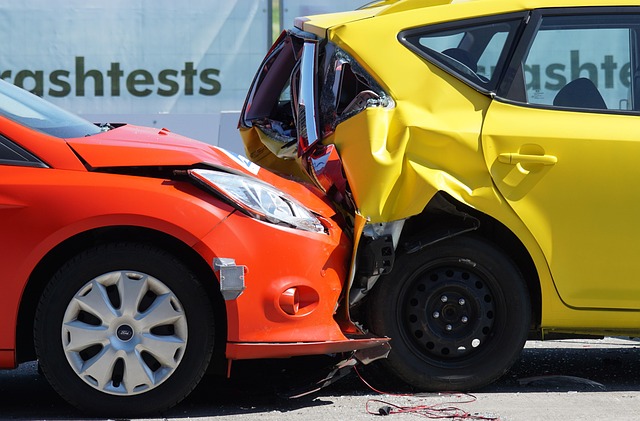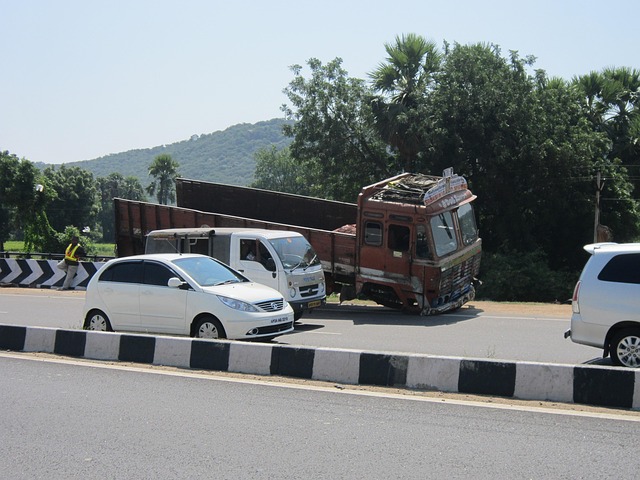Collision versus comprehensive auto insurance coverage: a guide to choosing the right protection for your vehicle. Collision insurance covers accident-related damages, offering peace of mind for drivers at a lower cost. Comprehensive insurance provides broader coverage against events like theft, vandalism, natural disasters, and animal damage, ideal for high-risk areas or valuable vehicles. Evaluate your driving habits, vehicle value, and risk tolerance to determine the best option. Balancing cost and comprehensive protection is key to making an informed decision between collision and comprehensive auto insurance policies.
Collision and comprehensive insurance are two essential types of auto coverage, offering protection against different risks on the road. While collision insurance covers repairs or replacements due to accidents, comprehensive insurance provides broader protection, including events like theft, vandalism, and natural disasters. Understanding these key differences is crucial when choosing the right policy for your needs. This article will guide you through the ins and outs of collision vs. comprehensive auto insurance, helping you make an informed decision based on cost and coverage.
Understanding Collision Insurance: Coverage and Benefits

Collision insurance is designed to protect you from financial loss in the event of a car accident, covering repairs or replacement costs when your vehicle suffers damage due to collision with another object or vehicle. This type of coverage typically includes benefits such as repair or replacement of damaged parts, towing and labor expenses, and even rental car reimbursement during the time your vehicle is being repaired. It’s a vital component in many auto insurance policies, especially for those who drive frequently or live in areas with high traffic congestion.
When comparing collision vs. comprehensive auto insurance, it’s important to understand that while collision coverage specifically addresses physical damage, comprehensive insurance offers broader protection by covering a wide range of events beyond collisions, including theft, vandalism, natural disasters, and animal-related incidents. While comprehensive insurance is more extensive, collision insurance can be a more affordable option for drivers who primarily need protection against accidents and related repairs, making it a strategic choice in the context of their individual needs and budget considerations.
Comprehensive Insurance: What It Covers and When It's Necessary

Comprehensive insurance, as the name suggests, offers a broader protection umbrella for your vehicle beyond what collision insurance covers. While collision insurance primarily pays for repairs or replacements when your car is damaged in an accident, comprehensive insurance kicks in for damages caused by other events. These can include natural disasters like floods, storms, or animal-related incidents, as well as man-made hazards such as theft, vandalism, and even damage from falling objects.
Determining if comprehensive insurance is necessary depends on your driving habits, vehicle value, and personal risk tolerance. If you live in an area prone to severe weather events, have a high-value vehicle, or are particularly worried about the potential for theft or vandalism, comprehensive insurance can be invaluable. In contrast, collision insurance might suffice for drivers with older, lower-value cars who drive cautiously and live in safe neighborhoods. The decision between collision vs. comprehensive auto insurance ultimately revolves around balancing cost and peace of mind.
Key Differences Between Collision and Comprehensive Policies

When comparing collision versus comprehensive auto insurance, understanding their key differences is crucial for making an informed decision. While both policies offer financial protection against specific events, they cover different types of damages. Collision insurance specifically covers damage to your vehicle resulting from collisions with other vehicles or fixed objects, including costs for repair or replacement. On the other hand, comprehensive insurance provides broader coverage, protecting you against a wider range of incidents beyond accidents, such as theft, vandalism, natural disasters, and animal-related damage.
A key distinction lies in the scope of events they cover. Collision policies are primarily focused on physical damage to your car, making them ideal for drivers who frequently face traffic accidents. Comprehensive insurance, however, offers a more holistic approach by safeguarding against various unforeseen circumstances that might leave your vehicle damaged but not necessarily in a collision. This makes comprehensive coverage attractive to owners of valuable or rare vehicles seeking maximum protection.
Evaluating Your Needs: When to Choose Each Type of Insurance

When deciding between collision and comprehensive auto insurance, evaluating your needs is crucial. Collision coverage is designed to protect you against damages resulting from accidents, regardless of fault. It’s a good fit if you’re prone to fender benders or drive in areas with high traffic and frequent accidents. On the other hand, comprehensive insurance goes beyond accidents, covering damage from events like theft, vandalism, natural disasters, and even bird droppings. Consider this option if your vehicle is valuable, or if you live in an area where such incidents are common.
Collision insurance is typically cheaper than comprehensive, as it focuses on specific perils rather than a wide range of potential risks. However, comprehensive offers more protection for unforeseen circumstances. Before making a decision, analyze your driving history, the condition of your vehicle, and the risks inherent in your environment to choose the most suitable coverage.
Comparing Costs: Collision vs. Comprehensive Premiums

When comparing collision vs. comprehensive auto insurance, one of the primary factors to consider is the cost of premiums. Collision insurance covers damage to your vehicle from accidents, while comprehensive insurance protects against a broader range of events, including theft, vandalism, and natural disasters. Premiums for these policies can vary significantly based on several factors, such as your driving record, vehicle make and model, location, and coverage limits.
Collision insurance tends to be more affordable than comprehensive insurance since it typically covers only the cost of repairing or replacing your vehicle after a collision. Comprehensive insurance, on the other hand, offers broader protection but usually comes at a higher premium due to its additional benefits. It’s essential to evaluate your risk profile and the specific needs of your situation when deciding between these two options to ensure you’re getting the best value for your money.
Making an Informed Decision: Selecting the Right Auto Insurance Coverage

When deciding between collision and comprehensive auto insurance, understanding the differences is key to making an informed decision. Both coverages protect against financial loss in the event of an accident, but they cater to distinct needs. Collision insurance is designed to repair or replace your vehicle after a crash, covering costs regardless of who’s at fault. It’s a solid choice if you drive an older car with a high replacement value or if you’re prone to accidents.
Comprehensive insurance, on the other hand, goes beyond collision protection by insuring against various other risks like theft, vandalism, natural disasters, and even roadside assistance. It’s ideal for those who want peace of mind knowing their vehicle is protected from unexpected events. Weighing these options allows you to choose the right balance between financial security and premium costs to best suit your driving needs and budget.
